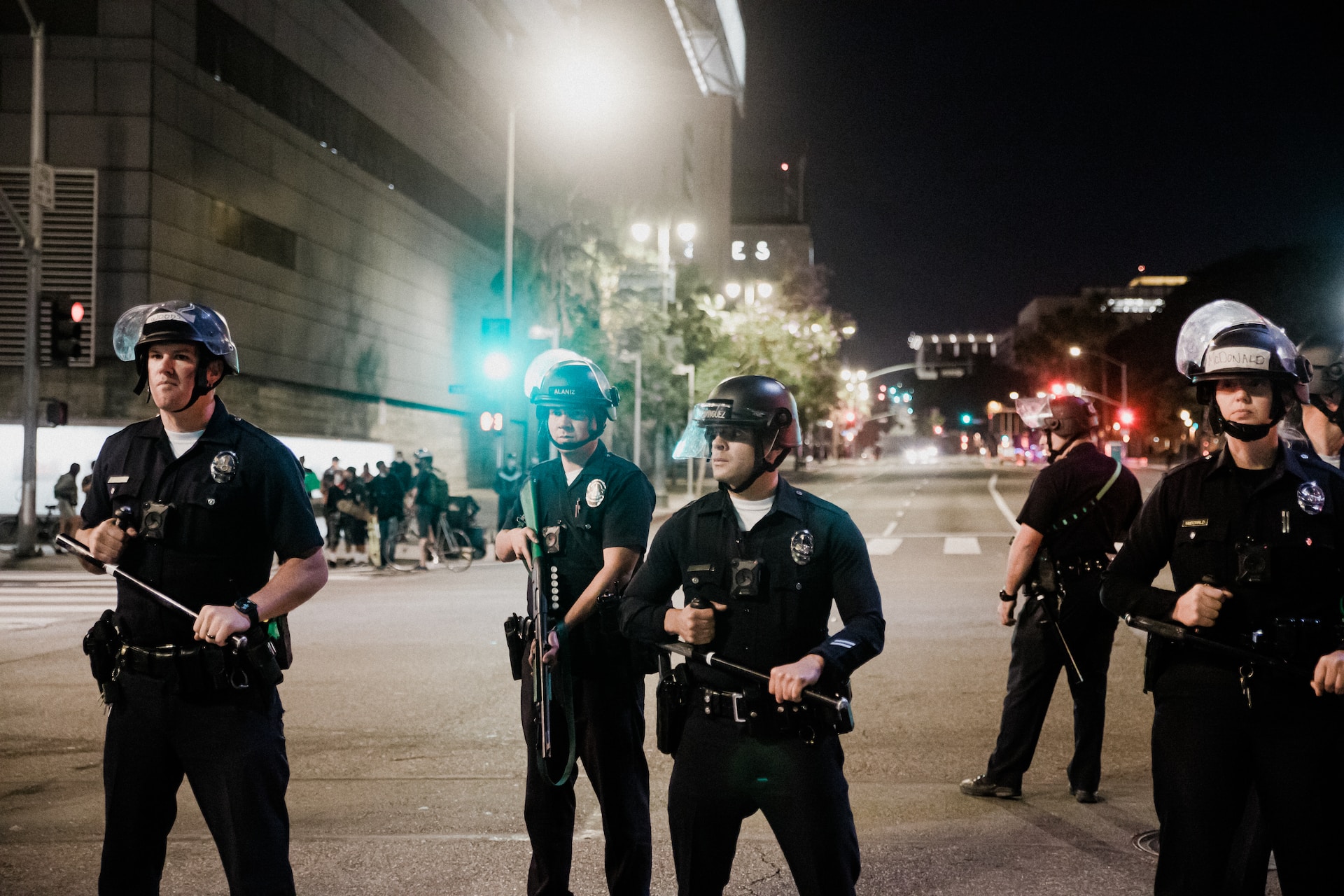
05 May What Is Considered Use of Excessive Force by Police in Colorado?
Police officers in Colorado swear to uphold the law and keep citizens safe. Sometimes, police officers use too much force when making an arrest. Excessive force by police violates a person’s civil rights and can lead to injury and even death.
The lawyers at Holland, Holland Edwards & Grossman, LLC, know how traumatic an excessive force incident can be. We want to ensure all Colorado citizens understand what constitutes excessive force and what their rights are in such a situation.
What is excessive force by police?
Excessive force occurs when a police officer uses more force than a reasonable officer would arrest or restrain a person. In other words, the amount of force an arresting officer uses should match what they’re trying to do and be based on a reasonably perceived need for force.
For example, imagine a police officer is arresting someone for drunk and disorderly conduct who is not an immediate threat to themselves or others. The officer draws their weapon, pushes the person down to the ground resulting in a broken arm, sits on top of them, and handcuffs them. In this situation, the officer uses excessive force as the defendant did not have a weapon, was not hurting anyone, and did not pose an immediate threat to the officer or others.
The Civil Rights Act, 42 U.S.C. 1983 dictates that officers may only use objectively reasonable force. Colorado statute 18-1-707 also addresses the proper amount of physical force an arresting police officer may use. This law outlines when an arresting police officer may use deadly physical force on a defendant, as well as when they can use a “chokehold” on another person.
In determining whether excessive force by police occurred or not, the following factors may be considered:
- The severity of the crime the person injured was suspected of
- Did the injured person pose an immediate threat to the officer or other people around them
- If the officer knew the injured person was armed with a gun or other deadly weapon or not
- Did the injured person resist arrest or try to get away
- What is the extent of the injuries suffered from the force
- Was the level of force reasonable in the circumstances
Colorado SB20-217
Following the death of George Floyd in Minneapolis in May 2020, Colorado passed SB20-217, also known as the “Police Integrity Transparency and Accountability Act,” in September 2020.
Under Colorado law:
- Colorado police officers cannot use deadly force against a defendant suspected of a nonviolent or minor crime.
- Officers must use nonviolent strategies, when possible, before using physical force on a suspect.
- When using physical force, it must occur in a way that minimizes any injury to the suspect.
- Chokeholds and carotid holds are banned.
Do officers have to report excessive force incidents?
Colorado statute 18-8-802 says that a police officer who witnesses an act of excessive force must report it to their immediate supervisor. This act of excessive force could occur while making an arrest, during the booking process, when taking a person into custody, or during a crowd control event.
The same Colorado statute also requires that any officer witnessing excessive force has a legal duty to try to intervene and stop the incident. This is the requirement of federal civil rights law under the United States Constitution as well.
Under Colorado police laws, a police officer failing to report an excessive force incident can face criminal charges themselves.
Civil Rights Lawyer in Denver
Excessive force by police violates a person’s civil rights. Excessive force violates the Fourth Amendment’s right against unreasonable search and seizure. If you or a loved one wrongfully suffered injuries during an arrest, you have the right to ask the courts to compensate you for your injuries and also potentially punish those who have caused you injury..
If you are a victim of excessive force by police, you need a civil rights attorney by your side to help you be heard. Call Holland, Holland Edwards & Grossman, LLC today at 303-860-1331 or contact us online to request a consultation.



